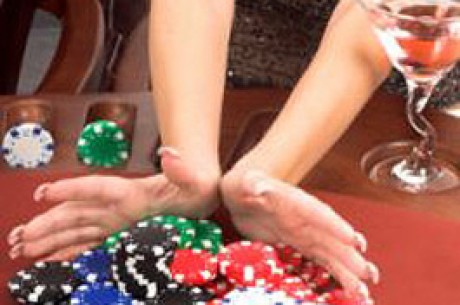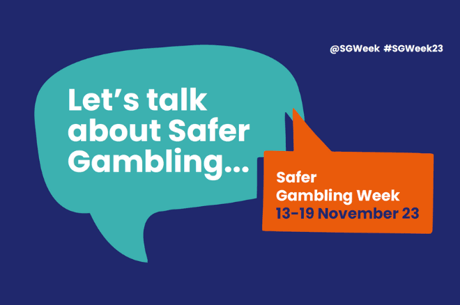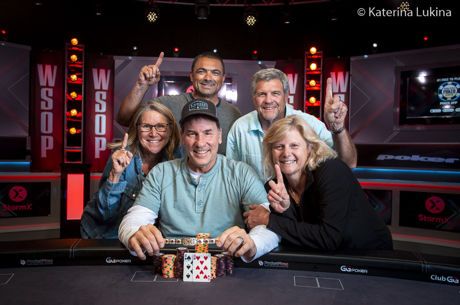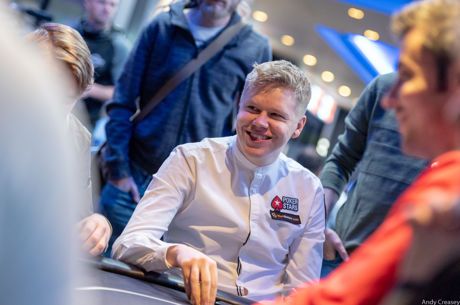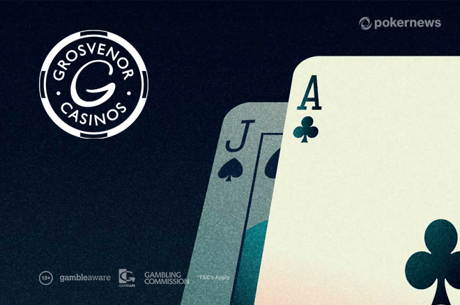The Poker Counselor's Corner (63)
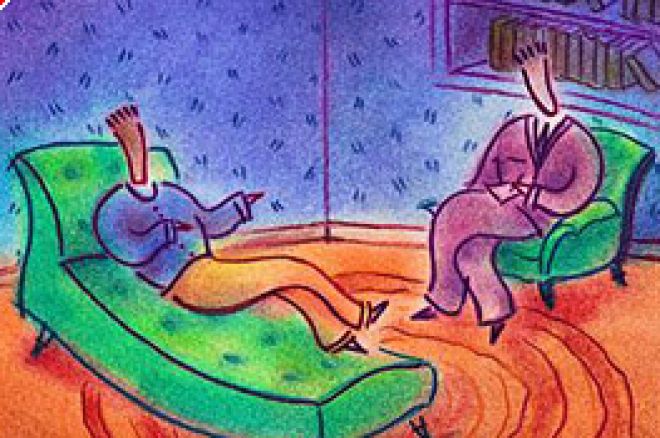
Dear Poker Counselor: I just can't help it. I get myself worked up when I get taken out of a tournament. This is especially true when I take a bad beat along the way. How do I keep from getting upset when I lose in a tournament? - Emailed by Estaban
I get variations of this question all of the time. It seems that many, many poker players out there are trying to "turn-off" their emotions. After a loss, everyone wants to remain unaffected and on an even emotional level. Unfortunately, folks, we simply do not work that way. Try as we might, we cannot turn on and off our emotionality and our reactions. After all, we are not robots. When we see our hopes of a big poker win dashed by a bad beat or a poor play, we can't help but experience some disappointment, anger, and disgust. What we can control in the equation, though, is the impact and severity of that emotional wave. Imagine a rock that slowly begins rolling down a long hill. If we allow that rock to move along unchecked, it will soon be racing and bounding uncontrollably as it picks up speed down the slope. It would be a different story if we directed that rock, though. If a trench was built to allow the rock to slowly snake as it descends down the hill, it would be a much more manageable decent. If tall grasses were placed in the pathway it would decrease the speed, as well. When we experience a disappointment at the table, the emotional rock is cast down the hill. Unchecked that rock will become dangerous as it careens downward and produces anger, self-doubt, despair, and/or resignation. Your goal is not to stop that rock, it is to control and slow the decent. One way to do this is via sharp cognitive work. This involves outthinking your emotions. Boil down your reactions, and attempt to pinpoint their root. Are you angry at yourself for a poor decision? Is it more of a supreme disappointment because you had already begun thinking of how you'd utilize the prize monies? Is it a feeling of confusion, dissonance, or distrust because you relied on poker odds that did not hold up? Once you've narrowed and dissected the emotions, you can take some time to re-think and address each. This is your emotional equivalent to the tall grasses and trenches that help to control the rock's travel. Never have the goal to be devoid of emotional reactions. It will never happen. As humans, it is natural and healthy to experience emotions for all sorts of situations. What your goal should be is to control the emotional tidal wave to assure that their outcomes are helpful and productive, or at least not damaging.
Dear Poker Counselor: I played a hand at PokerStars last night, single table tourney. The board showed 8-8-J-J with 2 diamonds. The River brought up the 10 Spades. It had been check-check-check. This dude then suddenly goes all-in. It shocked me. I almost folded immediately since I only had Queen high to play. Then I went into the think-mode to try to figure what this guy had. The way he checked it just didn't seem to be right for the full house. I took the full amount of time allowed. One second before I was automatically folded, I stabbed at the call button. It was a rush when the chips were pushed my way. The guy had pocket 4's that had been counterfeited by the board. He was on a total bluff. My Queen kicker took it. The thing is, I know I would not have made that call in real life live action game. I play tighter in live games. �C Emailed by GirlGuy
What is it that leads you to play a tighter live game? How is it that you know you would not call that same bet in a live contest? I suppose that this may come down to the famed anonymity of the internet. It affects our play much more than most of us would ever like to admit. Put simply, the perceptions of others are in our minds when we are at a live table. Some of our actions at the table are colored by the fact, even if we attempt to convince ourselves that it is not the case. Your message is that you could not make that gutsy call in a live action game, as you would be embarrassed if you showed Queen high and your opposition showed a full house or Quads. Your internal psyche would hit upon some serious self-doubt, and you would worry about your appearance in light of your cohorts. The internet masks us and our play. We do not have to truly face any opponents, except for their occasional comments in the messaging box (which can be muted, anyway). With that seemingly hidden feeling, we feel at ease to play in different ways. Many use this avenue as an almost experimentation. Players play much looser than they ever have before. People attempt bold bluffs from terrible position. People will also attempt some calls on hunches or curiosity.
In this case, you ended up proving that the call was a good one. Although the outcome was positive for you, I wonder if your motivations were sound. You paint the picture of stabbing reluctantly at the mouse on a guess. That certainly does not sound like a solid call on a solid read. The fact that you are certain you would have folded in the same spot in a live game only underscores the unclear motivations. Don't allow the masking effects of the internet to alter your play significantly. This is the trap that causes many players to leak cash online. It is great to make a gutsy call, but be sure that your thoughts and reads are solid that are fueling that play whether online or in live action games.
KEEP THOSE QUESTIONS COMING!! [email protected]



